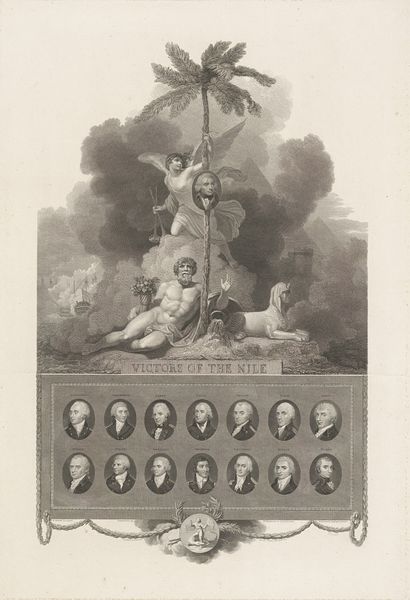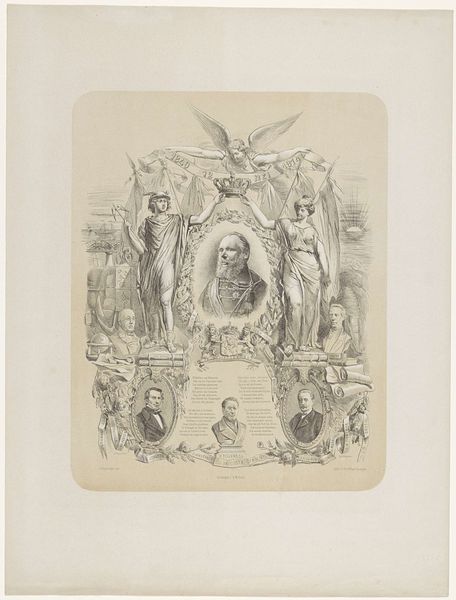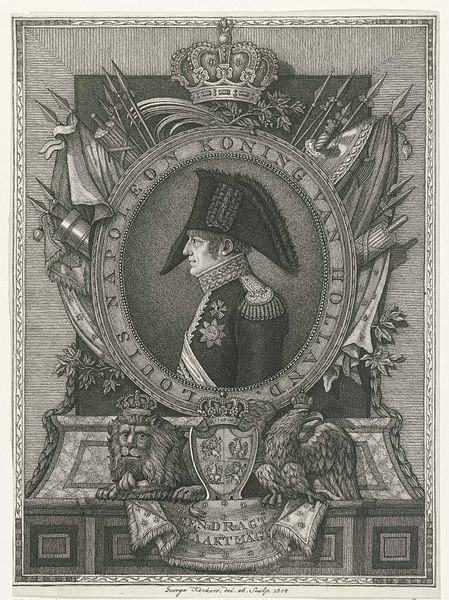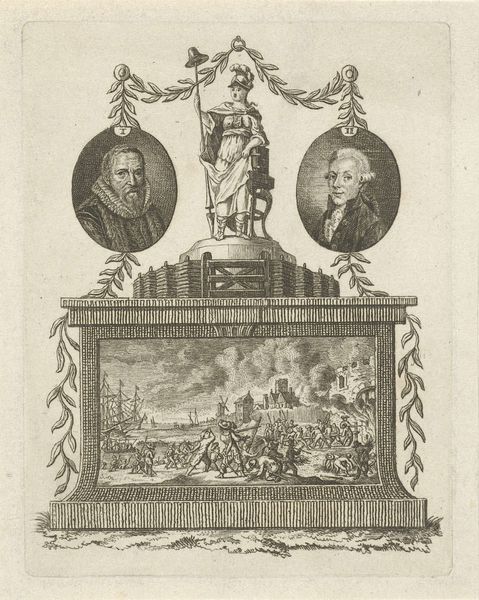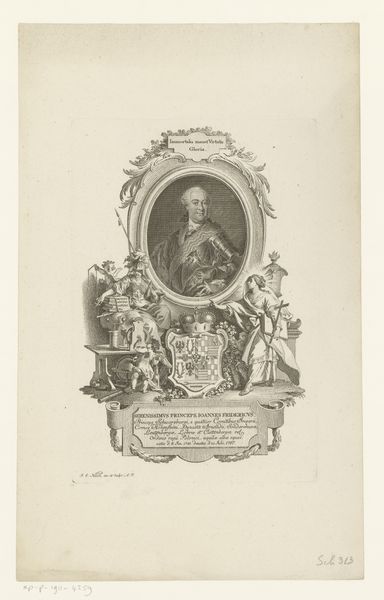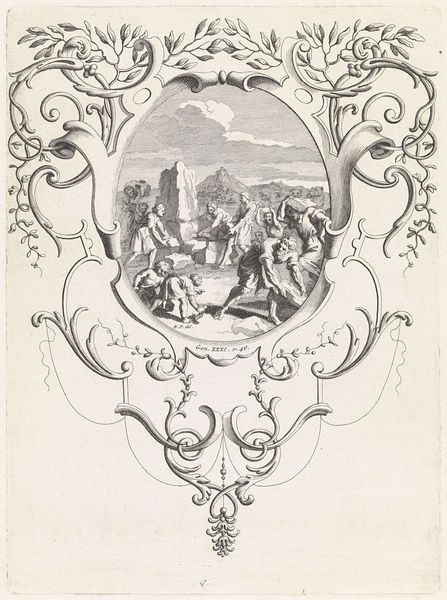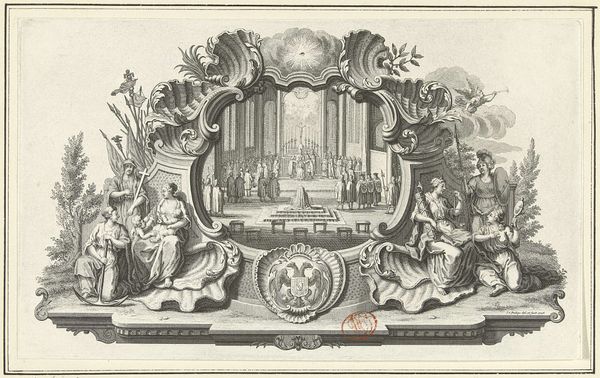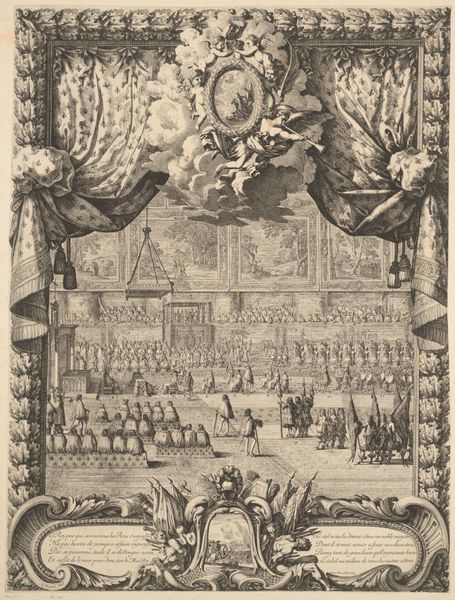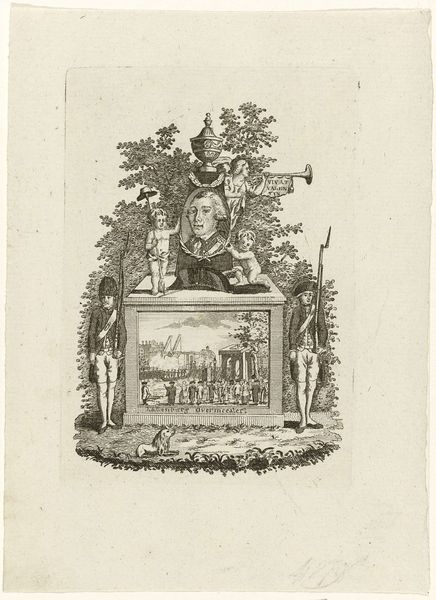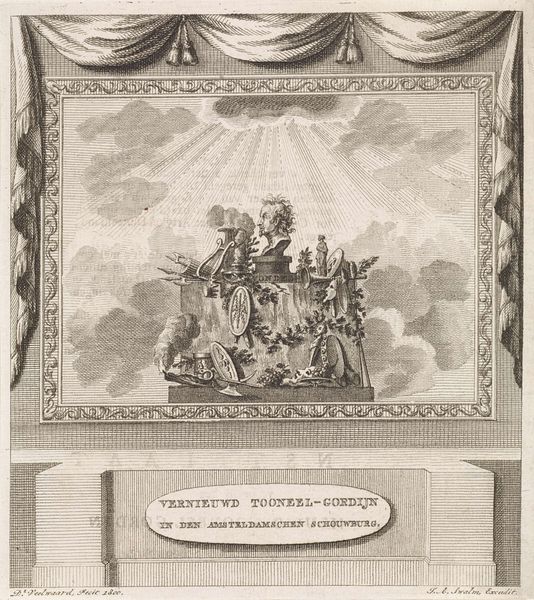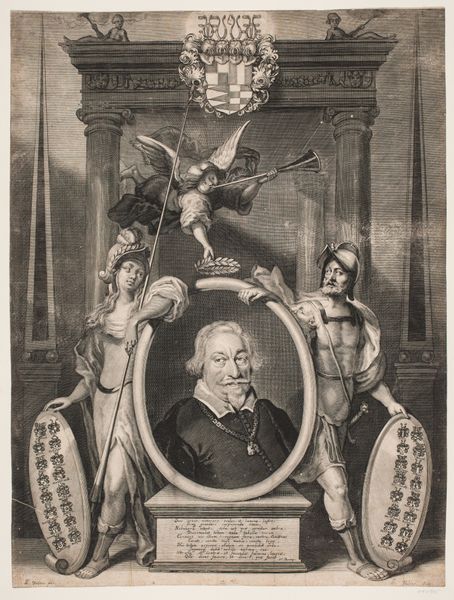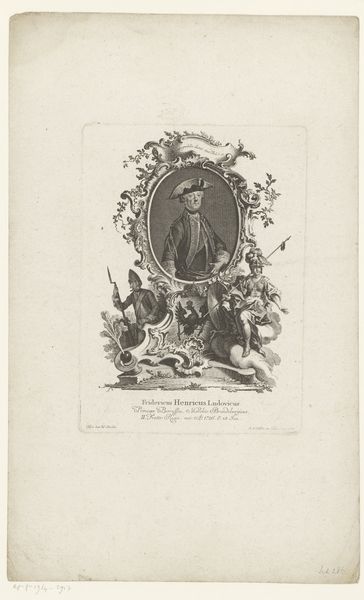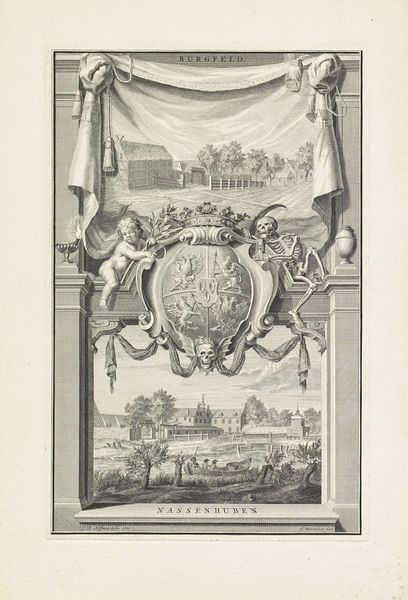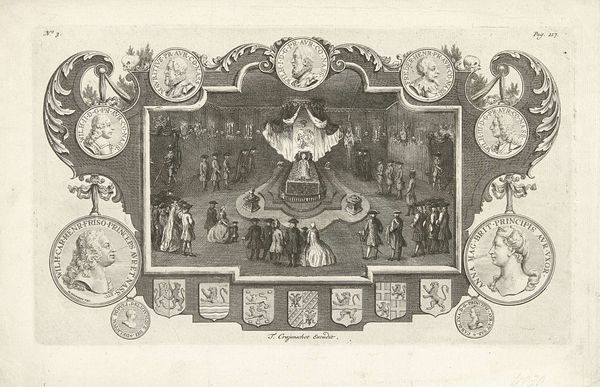
print, engraving
#
portrait
#
blue ink drawing
# print
#
old engraving style
#
history-painting
#
engraving
Dimensions: height 378 mm, width 308 mm
Copyright: Rijks Museum: Open Domain
Editor: So, this is *Nieuwjaarswens voor 1832*, a print made around 1831-1832. It’s attributed to Anonymous, and it’s an engraving. What immediately strikes me is how it frames emptiness—almost like a stage set. What do you make of all of these seemingly disparate visual elements gathered together? Curator: It’s a fascinating visual assemblage, isn’t it? Notice how the portraits of military figures flank the central void above the image of the battle of Hasselt. Those faces are carefully chosen, loaded with associations of power and authority. They aren't just portraits; they represent a carefully constructed narrative. Editor: A narrative of…? Curator: Domination, really. The placement, high and elevated, implies superiority. Think about the weight those uniforms and decorations carry. Then consider the blank space; it mirrors that period's societal blank slate – an opportunity. How does the “battle” scene beneath factor into this for you? Editor: The battle seems chaotic and energetic, especially compared to the very posed portraits. I suppose the void at the top is like saying "the future is unwritten," or something? Curator: Precisely. This isn’t just a battle scene; it’s a symbol of conflict that offers possibilities to rewrite society, or perhaps return it to its ‘glorious’ origins. See how the blank space is deliberately framed by the trophies as signifiers of victory. So the unwritten narrative has already been won. What I find most fascinating here is not what’s present, but rather the implied power dynamic in the absences. Editor: That’s a perspective I hadn't considered – focusing on what’s not there rather than what is. I'm going to have to look at prints much differently from now on!
Comments
No comments
Be the first to comment and join the conversation on the ultimate creative platform.
